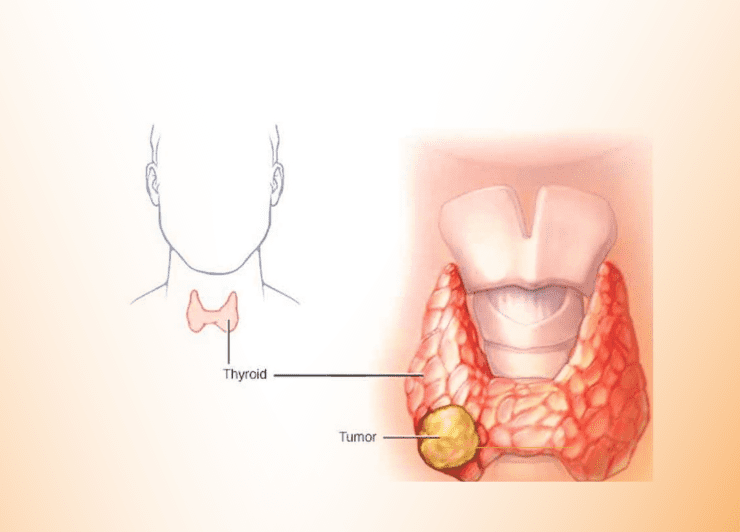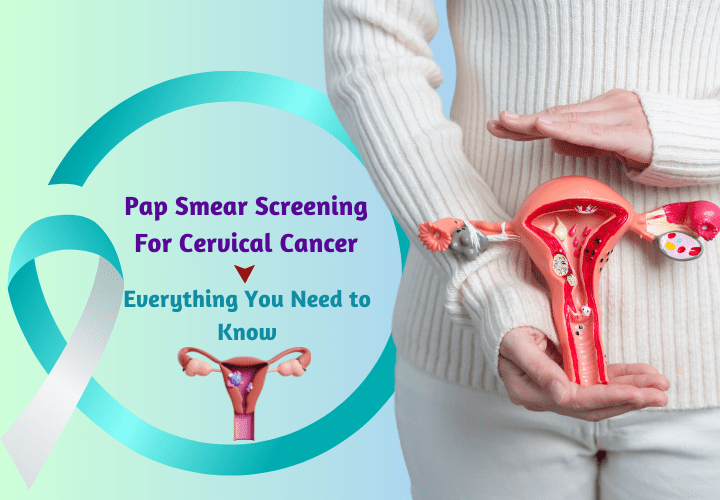What Things Should You Know About Thyroid Cancer?

What Things Should You Know About Thyroid Cancer?
- onco
- December 2, 2022
What Things Should You Know About Thyroid Cancer?
Thyroid cancer is a cancer that starts in the thyroid, which is a butterfly-shaped gland found at the base of the neck. It makes hormones that help control the body’s temperature, heart rate, blood pressure, weight, and blood flow. In the beginning, this cancer did not show any symptoms or causes. But when it grows slowly, it is very dangerous. Small thyroid cancer can be diagnosed through CT and MRI scans, and it can be cured with treatment. The thyroid cancer treatment is available in the cancer hospital. Treatment options for thyroid cancer are surgery, radiation, hormone therapy, immunotherapy, and radioiodine therapy. In this blog, you will learn about the symptoms and treatment options for thyroid cancer.
Thyroid Cancer Symptoms:
The symptoms of thyroid cancer include the following:
- If there are changes in your voice and an increase in hoarseness.
- When patients find pain in their throat and neck.
- In case the lymph nodes in your neck are swollen.
- Consult your doctor if you are constantly tired or experiencing nausea and vomiting.
- Finding a loss of appetite and unexpected weight loss.
- Finding difficulty breathing and swallowing.
Risk Factors for Thyroid Cancer:
Generally, the risk factors for thyroid cancer are low iodine intake, obesity, an enlarged thyroid, if you have a family history of thyroid cancer or thyroiditis, if there is exposure to radioactive rays from nuclear weapons, gene mutations, which also cause endocrine diseases, and if you have had radiation therapy for head and neck cancer.
Thyroid Cancer Types:
The different types of cancer cells include:
- Papillary thyroid cancer
This type of thyroid cancer is also known as differentiated thyroid cancer. It can happen at any age, but it most commonly affects people between the ages of 30 and 50.This type of cancer is small, and it spreads to the lymph nodes in the neck. But it is curable and rarely fatal.
- Follicular Thyroid Cancer:
Follicular thyroid cancer is a type of cancer that affects people who are older than 50 years. It generally occurs in people who don’t get enough iodine in their diet. Generally, this cancer does not spread to lymph nodes, but it spreads to other parts of the body, such as the lungs or bones.
- Anaplastic Thyroid Cancer
This aggressive type of thyroid cancer grows quickly and is very hard to treat. It affects people over the age of 60 and causes severe symptoms such as neck swelling as well as difficulty breathing and swallowing.
- Medullary thyroid cancer
This type of cancer basically occurs in people who have a family history of thyroid disease. Genetic mutation is the major cause of this disease. It generally begins in the group of thyroid cells known as C cells. The C-cells produce calcitonin, and this hormone helps to control the level of calcium in the blood at an early stage.
Treatment Options for Thyroid Cancer:
The treatments for thyroid cancer include:
- Radioiodine Therapy:
In this therapy, the doctor gives the patient a pill or liquid to swallow that contains a higher dose of radioactive iodine. This radioiodine will destroy the thyroid cancer cells, and the thyroid gland will absorb all the radioiodine. This therapy is completely safe for the patient.
- Radiation Therapy:
In this therapy, a machine is used in external radiation therapy to deliver energy beams to the tumor spot. And placing the radioactive seeds in or around the tumor is known as “internal radiation therapy.” This radiation not only prevents cancer cell growth but also kills them.
- Chemotherapy:
In chemotherapy, intravenous or oral chemotherapy medicines helps to stop cancer growth as well as kill cancer cells.
- Hormone Therapy:
In this therapy, it blocks the release of hormones therapy that are causing cancer to spread in the body.
- Surgery:
In the surgery, the surgeon will either remove part of your thyroid gland or the entire gland. This treatment is determined by the size and location of the tumor.
The thyroid cancer is fully curable, and the treatment stops the cancer cells from growing and spreading in different parts of the body. If the treatment does not cure thyroid cancer, it will prevent the cancer cells from spreading.
Recent Posts
-
Pap Smear Screening for Cervical Cancer: Everything You Need to Know
February 26, 2025
-
How Air Pollution Increases the Risk of Lung Cancer: A Growing Concern
February 18, 2025




